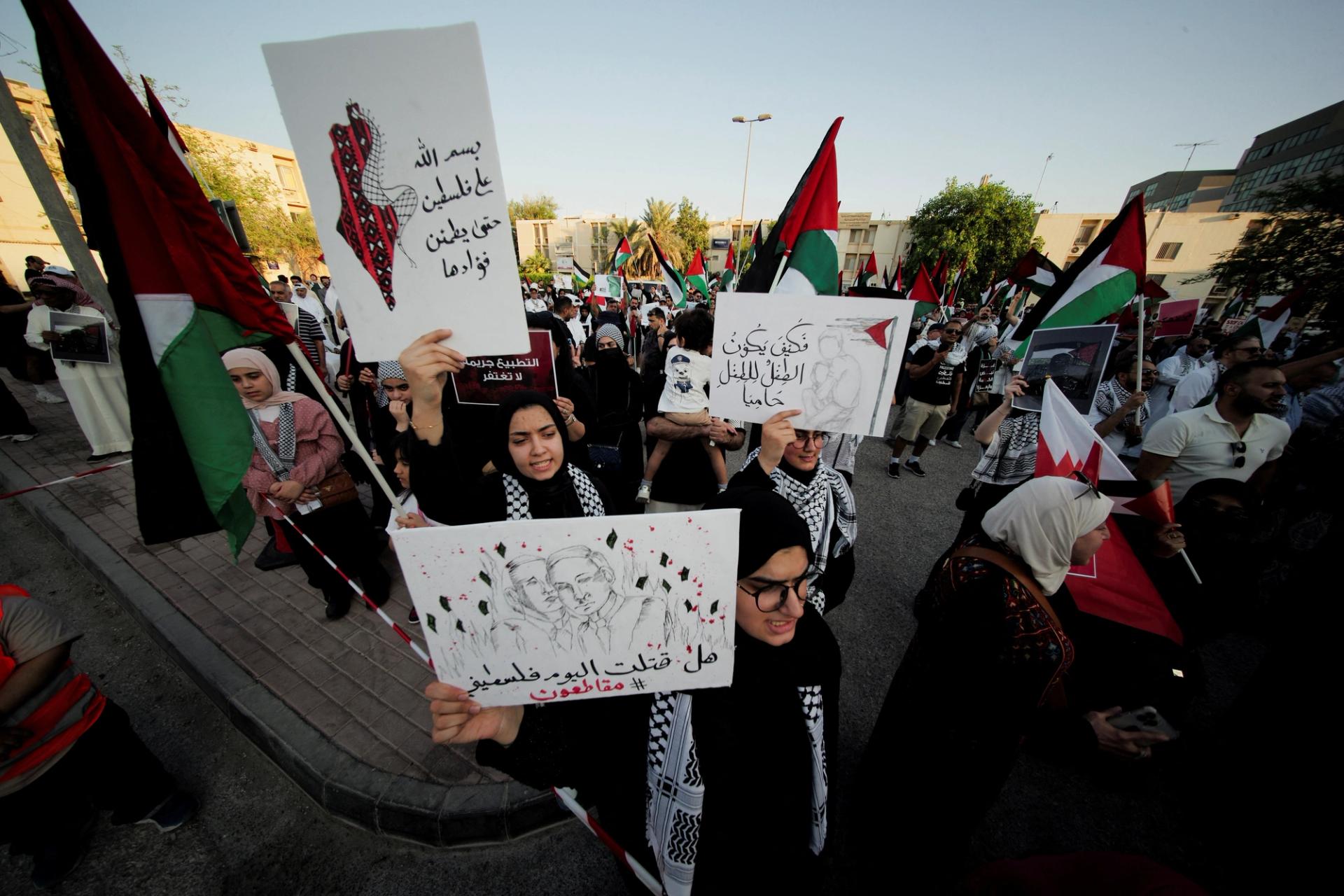The News
Bahrain’s parliament announced Wednesday that its ambassador to Israel has left Tel Aviv and that the country would freeze economic ties with Israel amid its ongoing war with Hamas.
Bahrain, which has long championed the Palestinian cause, is the latest Arab country to take action in protest of the war. The country’s council of representatives said that Israel’s operation lacks respect for international humanitarian law.
However, government officials from Israel and Bahrain denied the parliament’s statement that the ambassador had been recalled and said that ties between the two countries were stable.
Earlier this week, Jordan, a key U.S. ally, recalled its ambassador to Israel in protest of the Gaza war.
Its ambassador, who left two weeks ago when the conflict erupted, would only return to Tel Aviv if Israel put an end to what Jordanian foreign minister Ayman al-Safadi described as “the humanitarian crisis it has caused.”
Al-Safadi also cautioned that the war would threaten “the security of the entire region.”
Jordan signed a peace deal with Israel in 1994 — the second Arab country to have done so after Egypt, while Bahrain normalized ties with Israel in 2020 as part of the Abraham Accords brokered by the U.S.
In this article:
Know More
In countries like Morocco and Bahrain where protests are almost never allowed, hundreds of people took to the streets, demanding that their governments reverse agreements that formalized ties with Israel.
Middle East experts told the Associated Press that Arab governments want to “give some relief to people’s anger” and that such dissatisfaction may force countries to heed their citizens’ demands.
Over the past month, Arab leaders have moved from condemning violence on both sides, to explicitly criticizing Israel for its attacks on Gaza.
In a joint statement published last week, the foreign ministers of The United Arab Emirates, Bahrain, Saudi Arabia, Oman, Qatar, Kuwait, Egypt, Morocco, and Jordan condemned Israel’s continued bombardment in the Palestinian enclave, as well as what they said was the targeting of civilians.
Self defense, they wrote, “does not justify flagrant violations of international law and international humanitarian law, or the deliberate neglect of the legitimate rights of the Palestinian people.”
The Arab leaders also slammed the forced displacement of Palestinians in Gaza, who Israel has told to flee southward to escape the government’s planned attacks on Hamas. They called for “an independent, sovereign, contiguous and viable Palestinian state” with East Jerusalem as its capital.
Some Middle East observers, however, have said that the response from Arab states have been “feeble and flimsy.”
In an Al Jazeera op-ed, senior political analyst Marwan Bishara writes that Israel “believes that the Arab states are too divided, impotent and indifferent to Palestinian suffering to respond adequately.” His analysis is informed by what he argues is waning support for Palestinians over the years.
“As Israel continues to decimate Gaza and commit massacres of Palestinian children, women and men, its Arab partners must reconsider their normalization and cooperation agreements before they are forced to do so under heavy public pressure,” Bishara writes.
The View From South America
A handful of South American countries have also taken steps to distance themselves from Israel.
Bolivia on Tuesday said it would sever diplomatic ties with Israel over mounting civilian deaths and “in repudiation and condemnation of the aggressive and disproportionate Israeli military offensive being carried out in the Gaza Strip.” Chile and Colombia have also recalled their Israeli ambassadors from Tel Aviv.
Israel’s foreign ministry said Bolivia was surrendering “to terrorism” by cutting ties.
